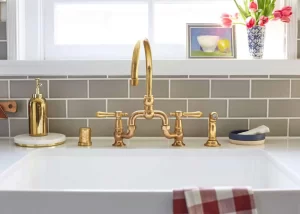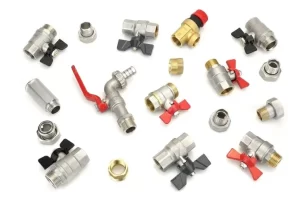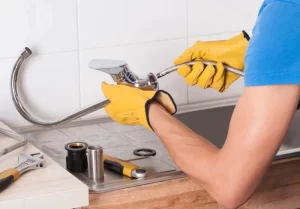Methods to Extend the Lifespan of Faucets and Valves
Faucets and valves are essential components in both industrial and residential plumbing systems. They are designed to be durable and long-lasting. However, due to their frequent use, neglecting their maintenance can lead to malfunctions and the need for replacement. By following a few simple methods, you can extend the lifespan of your faucets and valves and avoid the costs associated with replacing them.

Using High-Quality Faucets and Valves
One of the main factors in extending the lifespan of faucets and valves is selecting the right product. Given the variety and numerous options available, this is particularly important. The quality of construction and adherence to standard criteria play a crucial role in the durability and longevity of these components. When selecting, consider the material, quality of coating, type of use, manufacturer brand, and environmental conditions. Materials like brass, stainless steel, copper, bronze, plastic, and zinc are common in the manufacturing of faucets and valves. Maintenance techniques vary based on the material, quality, and resistance of the body.

The Importance of Coatings and Plating Quality
The coating and quality of plating are significant factors that affect the durability and lifespan of faucets and valves. Coatings are applied through plating with various alloys such as brass (golden), stainless steel (chrome), epoxy (colored), bronze, nickel, and copper. Stainless steel coatings are particularly resistant to corrosion, rust, and decay.
Extending Lifespan with Water Filters
Minerals and particles in water can reduce the lifespan of faucets and valves. Installing a water filter in the main water supply line can prevent sediment buildup and reduce the risk of damage to pipes and faucets. This not only improves water quality but also helps extend the lifespan of these components.
Regular Inspection and Maintenance
Regular and periodic inspections of various parts of faucets, connections, and pipes are essential for extending their lifespan. Early detection and repair of issues such as leaks, corrosion, blockages, rust, and cracks can prevent serious damage. Regular maintenance helps identify and resolve problems in different types of faucets, including hose bibs, radiator valves, coupling valves, and lockable valves.

Utilizing Modern Technology
Faucets and valves are affected by various factors, including high fluid temperatures, environmental temperature increases, direct sunlight exposure, and high humidity. Impurities in the fluid and rough surfaces also contribute to the degradation of these components. Modern technology in faucet design incorporates various methods to enhance resistance. Using technologically advanced faucets can help extend their lifespan by protecting them against temperature changes, wear, corrosion, and impacts. This not only prolongs their useful life but also reduces replacement costs.
Insulation in Cold Environments
In cold regions, or where temperatures drop significantly, freezing and bursting of pipes and valves are common issues. Proper insulation can prevent damage caused by temperature drops and extend the lifespan of faucets and pipes.
Controlling Leaks
Proper installation and leak control are crucial for extending the lifespan of faucets. Leaks can lead to corrosion and rust on the surface of faucets. Continuous exposure to moisture and leaks can eventually cause these components to decay and fail. Simple solutions like using washers and Teflon tape can effectively fix leaks and help prolong the life of faucets.
Avoiding Excessive Pressure
One common issue with faucets is damage caused by severe impacts or excessive pressure. It is important to avoid applying too much force when turning faucets on and off. Regardless of their type—whether lever, touch, rotary, or smart—these mechanical components should not be subjected to excessive force. Proper use and maintenance can significantly contribute to extending the lifespan of faucets.
Regular Cleaning
Regular cleaning is another important practice for maintaining and extending the lifespan of faucets. The simplest method is to use a damp cloth with water and vinegar, followed by drying. This prevents the buildup of sediment and dirt, which can lead to rust and corrosion. It also helps restore the shine of brass and copper faucets that may dull over time. Ensure that cleaning agents are suitable and avoid using bleach-containing cleaners, as they are not appropriate for these components.
By following these methods, you can increase the efficiency and extend the lifespan of your faucets. Finally, it is important to promptly replace any faulty faucets to prevent further damage.

